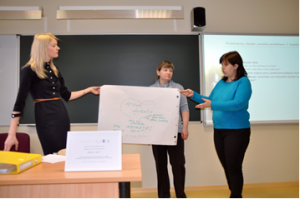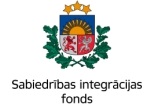Future business model or social entrepreneurship
Social entrepreneurship is an exciting and inspiring tendency of the 21st century, which at the moment is developing more and more in the world. Its essence is to stimulate positive social changes in a person’s life. Here, in Ludza, employees of “SinaVita” and members of Ludza Society for the Disabled can confirm it. Participants of the training course “Establishment, work and management of a social enterprise” also came to this conclusion.
What about?
The goal of the training is to stimulate understanding of basic principles of work and management of social enterprises, encourage students to become self-employed.
Who?
Training took place in Ludza within the framework of the project “Work is life” from January until April this year. Training was organized in day end evening classes so that also employed people have an opportunity to participate. In each group – 20 students from Ludza, Cibla, Rezekne and Karsava municipalities. Unfortunately, not all students came to the end of the training course and received certificates. For some of them topics were too difficult, others understood that they would to have to put effort into training and work hard, others apparently were hoping for some scholarship for the training course…
In traditional understanding, entrepreneurship means offer, distribution and sale of products and services. Social entrepreneurship basically does the same, with the exception that it also contributes directly to society. Profit of a social enterprise is not divided among its owners, but is invested in settlement of socially important problems. It is essential that socially unprotected groups of society are often involved in the activity of a social enterprise – people with disabilities, young mothers, unemployed people at pre-retirement age etc.
Students found out about legal aspects for establishment of a social enterprise, learned how to work out a business plan, acquired basics for organization of trade and sale of production. Practical classes about financial management and seminars were organized as well.




